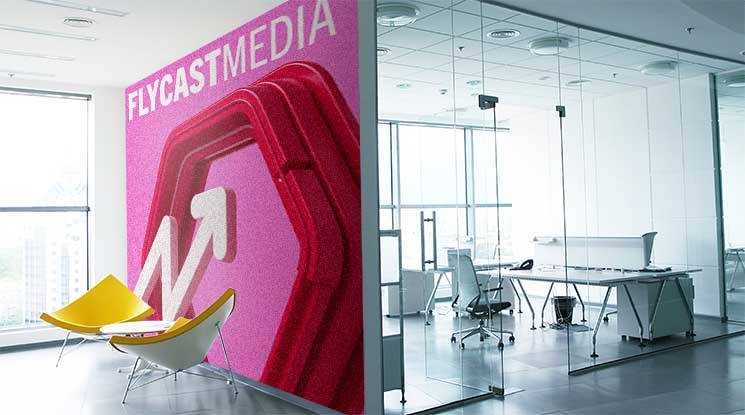FINANCIAL WEBSITE DESIGN BEST PRACTICES
A Clear Roadmap For A Seamless Client Experience
A powerful and effective web presence is no longer a luxury—it's a necessity, and for hedge funds, discretionary investment houses, fintech companies and related financial services, this can play a big role in attracting and retaining high-net-worth clients and discerning investors.
However, creating a website for UK financial services comes with unique challenges. The need to convey professionalism, transparency, and expertise whilst adhering to strict regulatory requirements demands a specialised approach to web design.
This comprehensive guide will explore the best practices, strategies, and considerations for crafting a UK financial services website that meets these challenges and exceeds expectations.
Quick Guide Summary

Understanding the UK Financial Services Audience
Diverse Clientele in UK Finance
Before we look into the technical intricacies of web design, it's crucial to grasp the unique characteristics and expectations of your target audience in the UK financial sector.
Your website visitors are likely to encompass a diverse group, from high-net-worth individuals (HNWIs), institutional investors, financial advisers and wealth managers, to corporate clients, fintech enthusiasts and early adopters.
Despite their varied backgrounds, these audiences share several common traits that shape their interaction with financial services websites.
Key Traits of the UK Financial Audience
Sophistication is a hallmark of this audience. They are typically well-educated and financially literate, capable of understanding complex financial concepts and products.
This sophistication is coupled with a keen awareness of risk. Your visitors understand the intricacies of financial markets and actively seek transparency in all aspects of your services.
Time is a precious commodity for these individuals, making efficiency and quick access to information paramount. They expect your website to provide the information they need swiftly and without unnecessary obstacles.
Security consciousness is another defining characteristic of this audience. In an era of increasing cyber threats and data breaches, they prioritise data protection and privacy. Your website must not only be secure but also clearly communicate its security measures to instil confidence.
Moreover, these visitors are detail-oriented, expecting comprehensive information and in-depth analysis to inform their decision-making processes.
Catering to Discerning Clients
To effectively cater to this audience, your website must align its messaging, aesthetics, and functionality with their preferences and expectations. This alignment manifests in several key ways:
Provide clear, concise, and jargon-free information that respects your audience's intelligence while ensuring accessibility. Offer in-depth resources and thought leadership content to demonstrate your expertise and add value to their visit.
Emphasise your security features and compliance measures to address their privacy concerns, and showcase your expertise through detailed case studies and performance data.
The user experience of your website should be intuitive efficient, and allow visitors to navigate and find information with ease. More information about specific pages and content are discussed further down the page,
Establishing Credibility Through Web Design
In the UK financial services industry, credibility is currency. Your website plays a crucial role in establishing and reinforcing your firm's credibility. Here are key elements that build trust and authority:
Professional Branding
Professional branding is the foundation of a credible online presence.
This includes consistent use of your logo, colour scheme, and typography across all pages. High-quality, original imagery that reflects your brand values should be prominently featured, along with professional headshots of key team members.
A clean, uncluttered design exudes confidence and competence, essential traits in the financial sector.
Transparent Information
Transparency is equally important in building trust. Your website should clearly communicate your firm's history, mission, and values. Detailed biographies of the leadership team should highlight their expertise and credentials.
Make information about your investment philosophy or approach easily accessible, and where applicable, provide transparent fee structures and pricing information.
Trust Signals
Trust signals play a significant role in establishing credibility. Ensure your site has SSL certificates for secure browsing, indicated by the padlock icon in the address bar.
Display compliance badges from relevant UK regulatory bodies such as the FCA and PRA. Showcase industry awards and recognitions, along with professional certifications of team members (e.g., CFA, CISI).
Include client testimonials and success stories, following compliance using FCA guidelines, and feature logos of reputable UK partners, clients, or media mentions.
Regulatory Compliance
Regulatory compliance is non-negotiable in the financial sector. Your website must clearly disclose your firm's regulatory status and FCA registrations.
Make your privacy policy and terms of service easily accessible, and include prominent disclaimers and risk disclosures where required. Ensure compliance with UK data protection regulations, such as UK GDPR.
Content Quality
The quality of your content speaks volumes about your expertise. All content should be well-written and error-free, demonstrating your firm's knowledge and professionalism.
Regular updates show active engagement in the UK financial industry. Incorporate thought leadership pieces, market insights, and educational resources to position your firm as an authority in the field.
Performance Transparency
Performance transparency is crucial for building trust with potential clients. Present historical performance data clearly, accompanied by necessary disclaimers. Use interactive charts and graphs to visualise financial data effectively.
Regularly update information on fund performance or company milestones to keep your audience informed.
Incorporating these elements into your website will build a digital environment that instils confidence, and trust with your current client base and potential clients.

Essential Best Practices for UK Financial Web Design
Creating an effective financial services website requires a delicate balance of aesthetics, functionality, and security. To meet the high standards expected in the industry, it's crucial to implement a range of best practices that cater to the unique needs of UK financial clients.
Responsive & Mobile-Optimised Design
For a positive user experience your website should include:
For a positive user experience. Your website should feature fluid layouts that adapt seamlessly to all screen sizes, coupled with touch-friendly interfaces for mobile users. Quick load times on mobile networks are essential to prevent user frustration and maintain engagement.
User-Centric Navigation & Intuitive User Journey
Implement a clear, logical navigation structure that allows users to effortlessly find the information they seek.
This includes using clear, descriptive navigation labels, creating a logical menu structure and hierarchy, and incorporating search functionality for quick information access. Breadcrumbs can aid in easy site orientation, whilst logical user flows guide visitors towards key actions.
Speed & Performance Optimisation
Speed and performance optimisation cannot be overlooked. A slow-loading website can lead to frustration and lost opportunities due to lacklustre SEO rankings and poor user retention.
Employ various optimisation techniques such as compressing and optimising images, minimising HTTP requests, leveraging browser caching, and using a content delivery network (CDN).
Implementing lazy loading for images and videos and cleaning up unnecessary code and plugins can further enhance performance.
Visual Appeal & High-Quality Imagery
Whilst UK financial services websites should prioritise professionalism, they needn't be dull.
Strategic use of visuals can significantly enhance engagement and comprehension. Incorporate custom graphics to explain complex concepts, use high-quality, relevant stock photos or original photography, and maintain a clean, uncluttered layout with strategic white space.
Subtle animations or micro-interactions can guide user attention, whilst ensuring all visual elements align with your brand's identity and colour scheme.
Compelling Calls-to-Action (CTAs)
Paramount in converting visitors into leads or clients, CTAs should be clear, action-oriented, and value-driven.
Use language that resonates with UK financial clients, such as "Request a Portfolio Analysis" or "Download Investment Insights". Place CTAs strategically throughout the site, especially on service pages, case studies, and blog posts.
Design them to stand out visually whilst maintaining overall design harmony, and ensure they are prominently positioned on mobile devices.
Accessibility Compliance
For accessibility compliance, key considerations include providing sufficient colour contrast for text readability, using alt text for images to assist screen readers, easy keyboard navigation for all site functions, and descriptive anchor text for links.
Data Visualisation & Interactive Elements
Given the complexity of financial data, effective data visualisation and interactive elements can make information more digestible and engaging for UK audiences.
Incorporate interactive charts and graphs for performance data, use calculators or tools for financial planning scenarios relevant to UK investors, and implement hover effects to reveal additional information.
Consider creating interactive timelines for company history or UK market events, and use animated counters for impressive statistics or figures.

Key Pages Every UK Financial Services Website Should Include
A well-structured UK financial services website should include several essential pages to provide comprehensive information and build trust with potential clients. Here's a breakdown of the key pages we recommend you include on your financial services website:
Homepage
The homepage serves as your digital front door, providing a high-level overview of your firm and its offerings to UK clients.
Key elements should include a clear value proposition above the fold, so visitors can immediately understand your unique selling points. A brief overview of services with links to detailed pages will help guide users to relevant information.
Incorporate trust signals such as UK awards, FCA registration, and key clients to establish credibility. Feature the latest news or UK market insights to demonstrate your firm's expertise and engagement with current financial trends.
Include a clear call-to-action for your primary conversion goal, whether that's booking a consultation or downloading a report. Finally, showcase performance highlights or key statistics, always with appropriate disclaimers to comply with UK financial regulations.
About Us Page
This page is an important asset for establishing your firm's credibility, expertise, and values in the UK market.
Essential components include a detailed company history and mission statement which helps to provide context and purpose for your operations.
Feature leadership team biographies with professional headshots to personalise your firm and highlight the expertise behind your services.
Clearly articulate your firm's investment philosophy or approach to help potential clients understand your methodology. Include regulatory information and FCA compliance status to reassure visitors of your adherence to UK financial standards.
Highlight any corporate social responsibility initiatives to showcase your firm's values and community engagement. Don't forget to prominently display UK awards and recognition to further bolster your credibility.
Services Page(s)
These pages outline each service you offer to clients, and provide detailed explanations along with key benefits.
Explain the process or methodology used to deliver each service, and Include case studies or success stories related to the service to provide real-world examples of your expertise.
Feature relevant team members or experts associated with each service to add a human touch to your offerings. Address common queries with FAQs specific to the service, and always include clear next steps or a call-to-action to guide potential clients towards engagement.
Investment Strategies / Products
For UK investment firms, it's essential to provide detailed information on your strategies or products.
Provide a clear explanation of each strategy or product so that potential investors fully understand what you're offering.
Include historical performance data, always with necessary disclaimers to comply with UK financial regulations. Clearly outline risk factors and considerations specific to UK investors, to promote transparency and informed decision-making.
Where applicable, state minimum investment requirements and fee structures. Consider providing a comparative analysis with UK benchmarks where appropriate to help potential clients contextualise your offerings within the broader market.
Client Portal / Login Area
Depending on the type of financial services you provide, a secure area for clients to access their accounts may be necessary.
This section should feature robust security options, including two-factor authentication and encryption, to protect sensitive financial data.
Suggestions Include a dashboard with an account overview for easy access to key information, a document repository for statements, tax documents, and other important papers, and a secure messaging system to facilitate communication between clients and your team.
You could also offer performance reporting tools to help clients track their investments, and include any product or service-specific tools and related features to further enhance your clients' experience and add value to your services.

Resources / Insights Page
To showcase your firm's expertise and provide value to UK visitors, a comprehensive Resources or Insights page is essential.
This section should be a hub of informative content that demonstrates your firm's thought leadership in UK finance.
Consider including blog posts that cover UK market trends and various financial topics for timely and relevant insights. Use whitepapers and research reports focused on the UK finance industry to provide in-depth analysis, and position your firm as a knowledgeable authority.
Webinars and educational videos can also offer an engaging medium to explain complex financial concepts and market dynamics. Regular newsletters with UK market updates can be used to keep your audience informed of the latest developments.
A glossary of financial terms can be particularly useful for clients new to investing, whilst UK economic calendars or event trackers can help your audience stay abreast of important dates and occurrences in the financial world.
Case Studies & Testimonials Page
Demonstrate real-world success and client satisfaction in the UK market.
Demonstrating real-world success and client satisfaction in the UK market can help build trust and credibility. A dedicated Case Studies & Testimonials page can effectively showcase your firm's track record.
Include detailed case studies with quantifiable results, illustrating how your services have benefited UK clients. Client testimonials for various products and services provide social proof and can be powerful in influencing potential clients.
Make sure all statements comply with FCA guidelines before publishing to maintain regulatory alignment. Consider incorporating video interviews with satisfied UK clients, as these can be particularly compelling.
Performance snapshots of successful UK strategies can also be effective as it provides concrete evidence of your firm's capabilities.
Team/ People Page
Highlighting the expertise and experience of your UK team personalises your firm and builds confidence in your services.
On your Team or People page, include professional biographies of key team members, showcasing their experience and specialities. Highlight UK credentials, certifications, and notable achievements to underscore your team's qualifications.
Detail areas of expertise and thought leadership to demonstrate the depth of knowledge within your organisation. Including links to published articles or speaking engagements in UK finance will further establish your team members as respected voices in the industry.
Contact Us Page
Making it easy for potential financial clients to reach out is crucial for converting interest into engagement.
Your Contact Us page should include multiple contact methods such as phone, email, and a contact form to cater to different communication preferences.
Clearly list UK office locations with maps to help clients find you easily. Consider implementing a booking system for consultations or meetings to streamline the process of setting up face-to-face interactions.
If available, a live chat option can provide immediate assistance to website visitors. Include links to your social media profiles for those who prefer to connect on these platforms. Finally, an FAQ section or a link to support resources can help address common queries efficiently.
Legal / Compliance Page
Addressing UK regulatory requirements and providing necessary disclosures is paramount in the financial services sector.
Your Legal / Compliance page should include a privacy policy that's compliant with UK GDPR, to show transparency in how you handle client data. Clearly state your terms of service to set expectations and protect your firm.
Include FCA regulatory disclosures and disclaimers as required by UK financial regulations. Outline your complaint procedures to demonstrate your commitment to client satisfaction and regulatory compliance.
Also, provide information on UK client protection schemes or insurance to reassure potential clients of the safety of their investments.
Careers Page
If you're actively recruiting in the UK, a Careers page can showcase your firm as an employer of choice in the financial sector.
List current job openings in UK offices, and provide clear descriptions of roles and requirements. Highlight your company culture and values to attract candidates who align with your firm's ethos.
Detail employee benefits and development opportunities to demonstrate your investment in your team's growth and well-being. Also clearly explain the application process to make it easy for potential candidates to express their interest in joining your firm.

Content Marketing Strategies for UK Financial Websites
Content marketing is a powerful tool and with the right type of content you can demonstrate expertise, build trust, and attract high-value clients. Here are the most effective content marketing strategies you can use for your financial services website.
Educational Content
Creating a library of educational resources that address common financial questions and concerns for UK investors is an excellent way to provide value and establish your firm's expertise.
Consider developing blog posts that explain complex UK financial concepts in clear, accessible language. A video series on UK investment strategies or market analysis can cater to visual learners and provide engaging, shareable content.
Infographics visualising UK economic trends or portfolio allocation can simplify complex data and make it more digestible for your audience. Podcasts featuring expert insights on UK finance and industry discussions can appeal to busy professionals who prefer audio content.
Interactive quizzes testing UK financial knowledge can also engage visitors while subtly highlighting your firm's expertise.
White Papers & eBooks
Developing in-depth guides that showcase your firm's expertise in UK finance can provide valuable insights to potential clients and position your firm as a thought leader.
Topics could include annual UK market outlooks, offering a comprehensive analysis of the coming year's financial landscape. Sector-specific investment analyses for UK industries can demonstrate your firm's deep understanding of various market segments.
Guides to alternative investments in the UK market can highlight your firm's innovative approach to wealth management. UK retirement planning strategies can appeal to a broad audience concerned about their financial future.
Lastly, exploring risk management techniques for UK investors can showcase your firm's commitment to protecting client assets.
Interactive Tools
Engaging UK visitors and capturing leads can be effectively achieved through useful financial tools. Consider developing various types of UK-specific investment calculators that allow users to explore different scenarios.
Investment return projectors based on UK market data can help potential clients visualise the potential outcomes of their investment decisions. Risk tolerance assessors tailored for UK investors can provide valuable insights and lead to more personalised conversations.
UK tax efficiency calculators can help users understand the tax implications of their investment choices. Portfolio rebalancing tools for UK assets can demonstrate your firm's technological capabilities and commitment to optimising client portfolios.
Thought Leadership Articles
Positioning your firm as a leader in UK finance involves sharing unique insights and perspectives on current and future trends. Focus on analysing UK regulatory impacts to demonstrate your firm's understanding of the legal landscape.
Explore innovative investment strategies to showcase your forward-thinking approach. Discuss technological disruptions in finance to highlight your firm's adaptability and modern outlook. Provide UK and worldwide economic forecasts to demonstrate your global perspective.
Examine emerging trends in financial markets to show your firm's ability to anticipate and adapt to change.
Case Studies and Success Stories
Showcasing real-world examples of how your services have benefited UK clients can be a powerful way to build trust and credibility.
Include detailed problem statements that are relevant to potential investors, clearly outlining the challenges faced by your clients. Describe the solutions implemented, highlighting your firm's problem-solving capabilities.
Provide quantifiable results and ROI to demonstrate the tangible benefits of your services. Include client testimonials, ensuring compliance with FCA guidelines, to add a personal touch and social proof.
Finally, share lessons learned and best practices to show your firm's commitment to continuous improvement and client success.

Newsletters and Market Updates
Keeping your audience informed with regular updates on UK market conditions and your firm's perspective is crucial for maintaining engagement and demonstrating your expertise.
Consider implementing a variety of update formats to cater to different information needs and preferences. Weekly market recaps can provide timely insights into short-term market movements, helping clients stay abreast of current trends.
Monthly economic outlooks offer a broader view, allowing for more in-depth analysis of economic indicators and their potential impact on investments. Quarterly portfolio strategy updates can align with many clients' review cycles, offering timely advice on portfolio adjustments.
Additionally, special reports on significant market events demonstrate your firm's ability to respond quickly to changing conditions, providing valuable guidance during times of market volatility or uncertainty.
Webinars and Virtual Events
Hosting online events is an excellent way to engage with your audience and showcase your expertise in a more interactive format. Live Q&A sessions with your investment team can provide clients with direct access to your experts, building trust and demonstrating transparency.
Educational webinars on financial planning topics can help clients better understand complex financial concepts and make more informed decisions. Virtual roadshows for new investment products offer an innovative way to launch and explain new offerings to a wide audience.
Expert panel discussions on market trends can position your firm as a thought leader, bringing together diverse perspectives on current financial issues.
Video Content
Utilising video content is an effective way to explain complex UK financial topics and humanise your brand. Explainer videos on UK financial concepts can break down intricate ideas into easily digestible formats, catering to visual learners.
UK market commentary from your analysts can provide timely insights in a more engaging format than traditional written reports. Client testimonials and success stories from satisfied customers add social proof and credibility to your services.
Team interviews and company culture showcases of UK offices help to personalise your brand, giving potential clients a glimpse into the people and values behind your firm.
Interactive Annual Reports
Transforming traditional reports into engaging digital experiences for UK stakeholders can significantly enhance the impact and accessibility of your financial communications.
Interactive charts and graphs with UK financial data allow users to explore information at their own pace and focus on areas of particular interest. Video messages from UK leadership add a personal touch and can effectively communicate key messages.
Animated highlights of key achievements in the UK market can make dry financial data more engaging and memorable. Clickable sections for detailed information on UK operations allow users to drill down into specific areas of interest, providing a more tailored reading experience.
Personalised Content Experiences
Offer content recommendations based on browsing history to guide users towards information that aligns with their interests.
Develop segment-specific newsletters, such as those tailored for UK high-net-worth individuals (HNWIs) or institutional investors, to provide more targeted and relevant content.
Utilise dynamic website content based on UK user profiles to create a more personalised browsing experience that speaks directly to each visitor's needs and interests.
Regulatory Updates and Compliance Guides
Helping your audience navigate the complex world of UK financial regulations can position your firm as a valuable resource and trusted advisor. Provide plain-language explanations of new UK financial regulations to help clients understand how changes may affect them.
Offer timely updates on FCA regulatory changes affecting UK investments to keep clients informed of important developments. Create compliance checklists for UK investors to help them ensure they're meeting all necessary regulatory requirements.
Develop guides on the tax implications of various investment strategies in the UK, helping clients make more informed decisions about their financial planning.

Data Security and Compliance for UK Financial Services Websites
In the UK, financial services websites must adhere to a complex web of regulations put in place by key regulatory bodies
Regulatory Bodies
The Financial Conduct Authority (FCA) sets stringent rules for financial promotions and client communications. Your website must accurately represent your services and include appropriate risk warnings. The FCA also mandates specific disclosures, such as your firm's regulatory status and complaint procedures.
The Prudential Regulation Authority (PRA) focuses on the financial stability of firms. While its rules may not directly impact website content, demonstrating compliance can enhance credibility.
The UK General Data Protection Regulation (UK GDPR) and Data Protection Act 2018 govern how you collect, process, and store personal data. This includes ensuring transparent data collection practices, obtaining proper consent, and providing clear privacy policies.
The Markets in Financial Instruments Directive II (MiFID II), as implemented in the UK, sets rules for investment firms, including requirements for transparency in fee structures and product information.
Regulatory Compliance
To ensure transparency and compliance with regulatory requirements, investment firms must include specific policy pages on their websites. These pages outline the company's policies and procedures in line with authorities such as the FCA. Essential pages include:
- Privacy Policy: Detailing how you collect, use, store, and protect personal data, in compliance with UK GDPR.
- Cookie Policy: Explaining the types of cookies used on your site and how they track user data.
- Disclaimer: Clarifying the limitations of the information provided on your site and any potential conflicts of interest.
- Terms and Conditions: Outlining the rules for using your website and services.
- Risk Warning: Providing clear information about the risks associated with investment products and services.
- Complaints Procedure: Describing how clients can raise concerns or complaints, as required by the FCA.
- Pillar 3 Disclosure: For firms subject to CRD IV, providing information about your risk management objectives and policies.
These pages should be easily accessible from your website's main navigation or footer
Data Security Measures
Protecting sensitive financial and personal information is crucial. Key security measures include:
Implementing robust encryption protocols, particularly SSL/TLS, to secure data transmission. This is visually represented by the padlock icon in web browsers, reassuring visitors of a secure connection.
Utilising secure hosting solutions that offer advanced firewalls, intrusion detection systems, and regular security audits. For investment firms handling particularly sensitive data, consider dedicated servers or private cloud solutions.
Implementing strong authentication mechanisms, including multi-factor authentication for client portals and admin areas. This adds an extra layer of security beyond traditional passwords.
Regularly updating and patching all software components to protect against known vulnerabilities. This includes the content management system, plugins, and any custom-developed components.
Conducting regular security assessments and penetration testing to identify and address potential vulnerabilities proactively.
Secure Client Portals
For investment firms, secure client portals are often a crucial component of the website. These portals should include:
- End-to-end encryption: for all data transmissions to make sure that sensitive financial information remains protected
- Robust access controls: including role-based permissions and session management, to prevent unauthorised access to client data.
- Secure document sharing capabilities: that allow for the safe exchange of financial reports, statements, and other sensitive documents.
- Audit trails: that log all user activities, helping to detect and investigate any suspicious behaviour.
Data Handling and Storage
Proper data handling practices are essential for compliance and security.
Implement data minimisation principles, collecting and storing only the information necessary for your services. Use proper data classification and apply appropriate security measures based on data sensitivity.
Implement secure data backup and recovery procedures to protect against data loss, and also make sure you have clear data retention and destruction policies in line with regulatory requirements and best practices.
Third-Party Integrations
If and when you integrate with third-party services you need to check that they're adhering to the data protection and security policies set out by the UK regulatory bodies as you could be held liable for any data breaches or related issues.
As an example, check third party data sharing agreements are in place and comply with UK GDPR requirements. It's a good idea to perform regular audits of third party services to keep up with ongoing compliance and security.

Incorporating Financial Website Design Principles And Enhancements
For a more modern and appealing website that resonates with UK audiences, here are the key design principles you can implement on your financial services website.
Minimalist & Clean Layouts
The trend towards simplicity continues to dominate UK financial web design. Key aspects of this approach include the use of ample white space to let content breathe, improve readability and focus, and let key messages stand out.
A limited colour palette with strategic use of accent colours can create a sophisticated look while guiding the user's attention to important elements.
Typography-driven design with clear hierarchy helps structure information effectively, making it easier for users to scan and absorb content.
Simplified navigation menus complete the minimalist approach with users being able to find what they need without feeling overwhelmed.
Dark Mode Options
Offering a dark mode alternative is becoming increasingly popular among UK users, providing a sleek, modern look and reducing eye strain in low-light conditions.
When implementing dark mode, it's a good idea to provide user-toggled light/dark modes so visitors can choose their preferred viewing experience.
Use proper contrast ratios in dark mode for accessibility, making sure text and important elements remain easily readable. Also include subtle colour variations to maintain visual hierarchy and preserve the structure and flow of your content.
Don't forget to test dark mode across all devices and browsers and adjust accordingly for a consistent user experience.
Micro-Interactions & Subtle Animations
You can improve user engagement with small, interactive elements that appeal to your audience. Examples include hover effects on buttons and links, and animated icons or logos with UK-specific themes to add a touch of local relevance.
Progress bars can be used for multi-step processes to improve user experience and provide clear feedback on task completion.
Subtle scrolling animations can also guide users through your content, while loading animations for data-heavy pages on UK market information can maintain user interest during brief waits.
Data Visualisation & Interactive Charts
Make complex UK financial data more accessible and engaging through innovative visualisation techniques. Trends include real-time data updates in charts and graphs using up-to-the-minute information.
Interactive elements allowing users to customise data views of UK financial information can also enhance engagement and personalisation.
For more complex data sets, consider 3D visualisations to add depth and clarity. Infographic-style presentations of key UK statistics can make data more digestible and shareable.
Asymmetrical Layouts
Break away from rigid grids with more dynamic page layouts that capture users' attention. When implementing asymmetrical designs, use this technique to guide the user's eye to important elements.
Using this layout, one point of note is that It's important to maintain balance and hierarchy despite asymmetrical elements so the design feels intentional rather than chaotic.
It's also a good idea to check responsiveness across widely used devices in the UK, as asymmetrical layouts can be challenging to adapt to different screen sizes.
With these points in mind you should sse asymmetry sparingly to avoid overwhelming users. Instead, focus on key pages or sections where it can have the most impact.
Bold Typography
Make a statement with strong, expressive typefaces that resonate with UK audiences. Current typography trends include the use of large, bold headlines to capture attention and convey key messages effectively.
A mix of serif and sans-serif fonts can create appealing contrast and help differentiate between different types of content. Keep in mind to use variable fonts for improved loading speed and flexibility, allowing for subtle adjustments in weight and width.
Custom fonts that align with your brand identity and design preferences can help your site stand out, but make sure that any custom typography is responsive to maintain readability and impact across devices.

Personalised User Experiences
Tailoring the website experience to individual UK users has become increasingly important in the financial sector. Implementation ideas include creating personalised dashboards based on UK user preferences, with visitors having the ability to customise their view of financial information.
Content recommendations based on browsing history of UK financial topics could help users discover relevant information more easily. For logged-in UK users, offering customisable widget layouts could enhance engagement and user satisfaction.
AI-driven chatbots could also provide personalised assistance with UK-specific financial queries, offering immediate support and improving the overall user experience.
Sustainable and Ethical Design
Reflecting the growing interest in ESG (Environmental, Social, Governance) factors among UK investors, sustainable and ethical design elements are gaining prominence. Consider using nature-inspired colour palettes to subtly reinforce environmental themes.
Incorporate sustainability reports and ESG metrics relevant to UK markets, making this information easily accessible to socially conscious investors.
Visual elements representing ethical investing in the UK context can help communicate your firm's commitment to responsible finance.
Highlighting corporate social responsibility initiatives that resonate with UK audiences can further strengthen your brand's ethical positioning.
Virtual and Augmented Reality Elements
Emerging technologies like virtual and augmented reality offer exciting possibilities for enhanced user engagement in the UK financial sector. Potential applications include virtual tours of UK office spaces - clients can explore your facilities from anywhere.
AR-enhanced annual reports or investor presentations for UK stakeholders can make financial data more interactive and engaging. VR-based financial education experiences tailored to UK financial concepts can offer immersive learning opportunities.
Interactive 3D models of investment portfolios with UK market data can provide a more intuitive understanding of complex financial structures..
Voice User Interface (VUI) Integration
Catering to the growing use of voice-activated devices in the UK, voice user interface integration is becoming increasingly relevant.
Considerations include implementing voice-activated search functionality for users to find information hands-free. Offering audio versions of key content, such as UK market updates, can cater to users who prefer listening to reading.
Voice-guided navigation options can improve accessibility and user experience. Structuring content for voice search optimisation will future-proof your website in an ever-changing search medium.
Neumorphism
Neumorphism, a design trend that combines flat design with subtle, realistic shadows, can add depth to financial interfaces. Use cases in finance include soft UI elements for UK-specific calculators or interactive tools for a tactile, engaging user experience.
Neumorphic buttons and input fields can make interfaces more intuitive and visually appealing. Subtle depth in card-based layouts for UK financial product presentations can enhance visual hierarchy.
However, it's crucial to balance neumorphism with accessibility considerations for users, so that the design doesn't compromise usability.
Scrollytelling
Using scroll-based animations to tell your brand story can be a powerful way to engage UK audiences. Applications include animated timelines of company history in the UK market, providing a visual journey through your firm's milestones.
Progressive reveal of investment process steps can make complex information more digestible. Scroll-activated data visualisations of UK financial strategies can bring numbers to life in an engaging way.
Storytelling through case studies or client journeys can create a more immersive and memorable user experience.
Accessibility-First Design
Prioritising inclusive design for all UK users, in compliance with the Equality Act 2010, is a legal requirement and moral imperative.
High contrast options for visually impaired users can make all content easily readable, and keyboard navigation support is helpful for users who can't use a mouse.
A screen reader-friendly content structure can ensure that your website is navigable by users with visual impairments. Providing captions and transcripts for multimedia content can also improve accessibility for hearing-impaired users.

SEO Strategies for UK Financial Services Websites
Optimising your UK financial services website for search engines will help you get free organic traffic in the following weeks, months, and years to come, so it's worth careful consideration. Here are a few SEO strategies you can implement while developing the website:
Keyword Research & Integration
Identifying and targeting the right keywords for your products and services is fundamental to SEO success. Focus on specific financial keywords such as "hedge fund management" or "investment management services" to attract users with clear intent.
For local SEO, target location-based keywords like "wealth management London" or "financial adviser Manchester". Include long-tail keywords that reflect specific UK client queries, such as "best ETFs for UK retirement planning", to capture more targeted traffic.
Utilise keyword research tools like SEMrush, Ahrefs, or Google Keyword Planner to identify high-value keywords. Analysing competitor keywords in the UK financial sector can uncover valuable opportunities.
Once you identify relevant keywords, you can incorporate them naturally into page titles, headers, meta descriptions, and content to improve relevance and rankings.
On-Page SEO Optimisation
Optimising individual pages is a crucial element when it comes to improving search engine rankings. Craft attention-grabbing, compelling title tags and meta descriptions that accurately represent your content and encourage clicks.
Use header tags (H1, H2, H3) in a logical hierarchy to structure your content and make it more scannable for both users and search engines.
Optimise image alt text and file names to improve accessibility and provide additional keyword opportunities. Create SEO-friendly URLs that are concise, descriptive, and include relevant keywords.
Implement internal linking to help search engines understand your site structure and distribute page authority. Also, add links to authoritative external sources to validate facts and statements to increase your content's credibility.
Technical SEO
A solid technical foundation is essential for supporting your SEO efforts. Implement SSL encryption for secure browsing (HTTPS) to protect user data and boost search rankings.
Create and submit XML sitemaps to Google and Bing to help search engines discover and index your pages more efficiently. You can also use schema markup to provide search engines with additional context about your content for added snippets in organic results.
Make sure your website is mobile-friendly and responsive, as mobile optimisation is a key ranking factor with search engines prioritising the mobile index.
Implement proper canonical tags to avoid duplicate content issues, diluted SEO efforts, and even deindexing. Set up and monitor Google Search Console to gain insights into your site's performance and address any issues promptly.
Voice Search Optimisation
As voice search becomes increasingly popular in the UK, optimising for these queries is crucial. Focus on long-tail, conversational keywords that UK users might speak when using voice assistants.
Create FAQ pages that answer common UK financial questions in natural language, mirroring how people might ask these questions verbally.
Optimise for featured snippets, as these are often used for voice search results. Complete your Google Business Profile with all relevant information, as this can be a key source for local voice search results.
Content Optimisation
High-quality, relevant content is the cornerstone of effective SEO.
This is why it's important to create in-depth, authoritative content that addresses the needs and questions of your UK financial services audience. Make sure to regularly update your content so it remains current and relevant.
Also, Implement a content calendar to ensure consistent publication of fresh, SEO-optimised content. Consider creating topic clusters, where multiple pages covering related topics link back to a central pillar page, to establish topical authority in specific areas of finance.
You should also consider doing a content pruning exercise after a set period of time to improve or delete underperforming content as this can also have a positive effect on SEO rankings.
Local SEO for UK Financial Services
For financial services firms with multiple physical locations, local SEO shouldn't be overlooked.
It's a good idea to claim and optimise your Google Business Profile for each location, and make sure that all information for each profile is specific to that location.
To further improve local SEO rankings, create location-specific pages on your website for each of your UK offices, and optimise them with a location address, local keywords and relevant content pertaining to that area.
User Experience (UX) Optimisation
Search engines increasingly consider user experience when ranking websites, so good site structure, speed and aesthetics all make a difference - think user friendly.
Create a visually eye-catching design with an easy-to-use site navigation structure that has a clear hierarchy of content. As a rule of thumb, visitors should be able to find any page within 2-4 clicks.
Optimise your site's loading speed by compressing images, minifying code, and leveraging browser caching. Implement clear calls-to-action (CTAs) to guide users through your site and improve engagement metrics.

Analytic Tools and Services to Better Serve Your Audience
The launch of a new website is just the beginning of your digital journey. Implementing robust analytics and committing to continuous improvement also plays a key role for long-term success. If you leverage data effectively, you can refine your UK financial services website to better serve your audience and achieve your business goals.
Google Analytics Setup
Start by installing Google Analytics 4 (GA4) for advanced tracking capabilities. This powerful tool allows you to set up custom events to track key user interactions relevant to UK financial services.
Create goal conversions for important actions, such as form submissions or downloads of UK financial documents. If applicable, implement e-commerce tracking for UK financial product sales to gain insights into your online revenue streams.
Heat Mapping and User Behaviour Analysis
Utilise tools like Hotjar or Crazy Egg to visualise user behaviour on your website. These platforms allow you to analyse click patterns, scroll depth, and user journeys.
Identifying areas of high engagement and potential friction points will allow you to make data-driven decisions so you can improve the overall user experience.
Session Recording
Implement session recording tools to watch actual user interactions with your website. This invaluable resource helps identify usability issues and areas for improvement on your financial services website.
Replaying real user behaviour can uncover insights that may not be apparent from aggregate data alone.
Custom Dashboards
Create tailored dashboards in Google Data Studio or similar tools to focus on key performance indicators (KPIs) relevant to UK financial services.
These dashboards can provide at-a-glance insights into your website's performance, allowing you to quickly identify trends and areas requiring attention.
Key Metrics to Monitor for UK Financial Websites
Engagement Metrics
Keep a close eye on average time on site for visitors, pages per session for UK financial content, and traffic bounce rates.
Monitor scroll depth on key financial pages to understand how users interact with your content. These metrics provide valuable insights into how engaging and relevant your content is to your UK audience.
Conversion Metrics
Track lead form submission rates for UK prospects, newsletter sign-up rates for UK market updates, and consultation booking rates
If applicable, monitor account opening rates for clients. These metrics directly reflect the effectiveness of your website in generating tangible business results.
SEO Performance
Monitor organic traffic growth from searches, keyword rankings for UK financial terms, and organic click-through rates (CTR).
Keep track of backlink growth and quality from financial sources. These metrics help you assess and improve your website's visibility in UK search results.
Content Performance
Analyse the most viewed pages and posts on site along with time spent on content, social shares and engagement from users. Also monitor download rates for financial reports and whitepapers.
This data will help you understand which content resonates most with your audience, and allow you to refine your content strategy accordingly.
Mobile Performance
With the increasing prevalence of mobile browsing, it's crucial to track the mobile vs. desktop traffic split for UK users, mobile conversion rates for UK financial services, and mobile page load times on UK networks.
These metrics help ensure your website provides an optimal experience for UK users across all devices.

DIY vs Professional: Building Your UK Financial Services Website
Now that we've covered just about everything that goes into building a financial services website, you may be asking yourself whether you should build the website yourself or enlist the expertise of a professional agency?
While the DIY approach might seem appealing at first glance, it's important to consider the unique challenges and requirements of the financial sector in the UK. Let's explore both options to help you make an informed decision.
The DIY Approach: Pros and Cons
Advantages of Building Your Own Website
- Lower initial costs.
- Complete control over the design process.
- Flexibility to make immediate changes.
- A sense of personal accomplishment.
Challenges of the DIY Route
- Time-consuming, especially for non-tech-savvy professionals
- Steep learning curve for web design and development
- Potential compliance risks due to unfamiliarity with UK financial regulations
- Limited access to advanced features and integrations crucial for financial services
- Difficulty in achieving a professional look that instils trust in potential clients
The Professional Approach: Pros and Cons
Advantages of Hiring a Professional Agency
- Expertise in regulatory compliance and security.
- Tailored user experience design for UK financial clients.
- Implementation of advanced functionality and features.
- Comprehensive SEO strategies for the UK financial sector.
- Mobile optimisation across all devices.
- Time and resource efficiency for your business.
- Ongoing support and maintenance.
Potential Drawbacks of Professional Services
- Higher initial investment.
- Less direct control over day-to-day development.
- Dependence on the agency's timeline and processes.
Making the Right Choice for Your UK Financial Services Firm
While building your own website is possible, the complexities of the UK financial services sector make professional assistance a valuable investment. A specialised agency can bring industry knowledge, technical expertise, and creative skills to the table .
As you consider your options, remember that your website is often the first point of contact between your firm and potential clients. A professionally designed website can be a powerful tool for establishing credibility, attracting clients, and growing your business.

Why Choose Flycast Media for Your UK Financial Services Website
As a specialised financial marketing agency with a team of experienced web developers, we offer a unique blend of industry expertise, creative prowess, and technical acumen. Here's why Flycast Media is the perfect choice for your UK financial services web design needs:
Deep Financial Sector Expertise
Our extensive experience working with UK hedge funds, financial institutions, and fintech companies sets us apart in the industry.
We possess an in-depth understanding of FCA, PRA, and UK GDPR regulations, with the skills to build a professional looking website that meets all necessary compliance standards.
Comprehensive Service Offering
At Flycast Media, we provide end-to-end web design and development services tailored specifically for the UK financial market.
Our offerings include custom financial web application development that meets UK standards, as well as SEO and digital marketing strategies designed to boost visibility for your firm in the financial services industry.
We don't just build your website and leave you to it; we offer ongoing website maintenance and optimisation to ensure your digital presence continues to evolve and perform optimally.
User-Centric Design Approach
We focus on creating intuitive, engaging experiences for UK financial audiences. Our expertise extends to designing secure client portals and data visualisation tools, essential features for many financial service providers.
We have a deep understanding of the needs and preferences of UK high-net-worth clients and institutional investors, allowing us to create websites that resonate with your target audience and drive engagement.
Technical Excellence
Our team is proficient in the latest web technologies relevant to UK financial services. We place a strong emphasis on performance optimisation and mobile responsiveness, ensuring your website performs flawlessly across all devices.
We also implement robust security measures aligned with UK financial regulations, providing peace of mind for both you and your clients.
Data-Driven Optimisation
We believe in the power of data to drive success. Our approach includes the utilisation of analytics to inform design decisions for financially interested audiences.
We conduct ongoing performance monitoring and A/B testing to continuously improve your website's effectiveness. Our conversion rate optimisation strategies are focused on UK user preferences, to help you turn visitors into clients.
Collaborative Process
We pride ourselves on maintaining transparent communication throughout the project lifecycle. Our agile methodology allows for flexibility based on market feedback, ensuring that your website evolves with your needs and those of your clients.
As we involve our clients in key decision-making processes you can be rest assured that the final product will align perfectly with your vision and goals.
Long-Term Partnership
Our relationship doesn't end at launch. We offer post-launch support and maintenance tailored to UK business hours, so help is available when you need it.
Regular performance reviews and optimisation recommendations are part of our service, and commitment to your ongoing success in the UK financial sector.
Let us help you create a digital presence that truly reflects the excellence of your financial services. Contact our web support team today for a free consultation on 0800 110 5923.
Shane McEvoy is a financial marketing expert with over 30 years' experience in digital advertising and financial services. He founded Flycast Media, a leading financial marketing agency, and has authored several influential guides and regularly contributes to respected industry publications - read his profile.